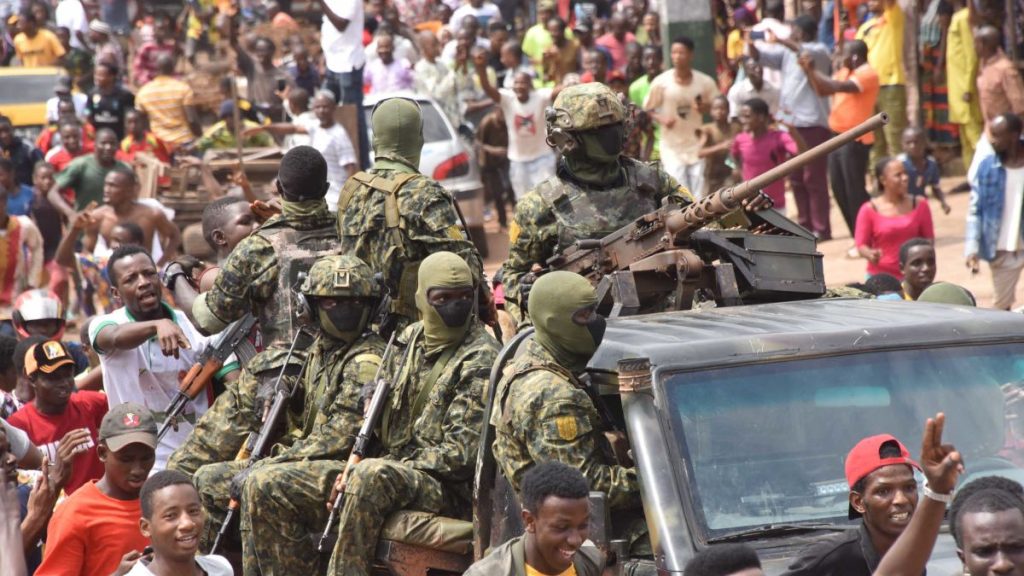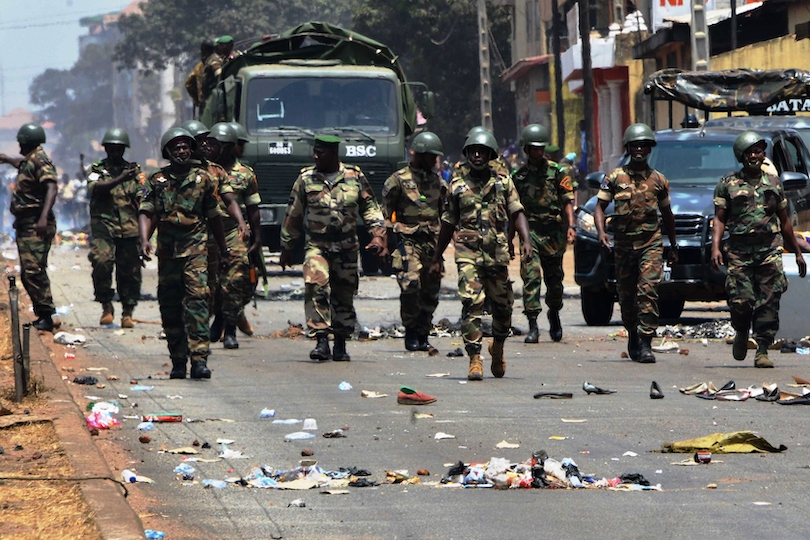Since 2009, Ali Bongo has been the president of the Central African country of Gabon. He was ousted in a military coup last Wednesday. Now under house arrest. This coup was made by the special branch of the army, the Republican Guard, which is mainly responsible for the security of President Bongo.

A short video released shortly after the coup shows deposed Ali Bongo collapsing. He urged the countrymen to ‘raise their voice’ for him.
Bongo ruled the oil-rich African nation for more than a century. He spent his days in great splendor and opulence. But that day he looked helpless.
It is important to think about the so-called anti-Western attitude. But I think the real thing is that the democratic system is not run for the benefit of the majority of the people in the country, it is for the benefit of the few people. For many years, the quality of life of the common people did not improve.
Kofi Hoffman, Fellow, Africa Program, Chatham House
However, the evidence that the call of the ousted ruler did not create any reaction in the minds of the common people was seen on the streets of Gabon. People are cheering in various cities including the capital Libreville. Many are taking pictures with the soldiers. The family’s dominance in the country was apparently ended by the rise of Bangor’s father, Omar Ali, to power in 1967.
Democratic regimes are ending with military coups one after the other in African countries. Instead, a new military ruler is emerging. There have been 10 coups in Africa since 2020. Most of these coups took place in Central and West African countries.

But instead of taking a stand against the military coup d’états, the people of these countries were seen cheering on the downfall of democracy. They shouted slogans on the streets in favor of the coup plotters.
The last coup in Africa before Gabon was on July 26, in Niger. After the coup, the country’s generals seized power. The stadiums were filled to the brim with the support of that military government.
Earlier, there was a coup in Guinea in 2021. The then President Alpha Konde held on to power despite strong opposition from the people. He was removed from power by the military through a coup d’état. A large part of the country’s population took a stand in favor of that coup in Guinea. They celebrated the seizure of power by the army.
The question has arisen as to why the people of Africa are showing support in this way even though they have taken over state power in an undemocratic way and by force. Experts say ordinary people are disillusioned with civilian leadership in Africa. Their optimism about the military leadership is a reflection of their disappointment.
Lena Kofi Hoffman is an Associate Fellow in the Africa Program at Chatham House, a London-based think tank. In this regard, he said, the people’s support for the seizure of state power by the military is not direct. That is, people do not support the army, but they want a change of power.
Hoffman also said, (the people through the military coup) had the opportunity to say that the government that was overthrown was a government that did not fully represent the interests of the people.
‘No Electoral Legitimacy’
Gabon is the latest country in Africa to have a ‘democratically elected’ leader removed from power by members of the military. A group of soldiers led by General Oligui Nguema, head of the Bongo Republican Guard, announced that they would take control of state power. At the same time, he declared the results of the disputed national election null and void. Ali Bongo got a single majority in the recently held elections.
Gabon’s population is approximately 2.3 million. Among them, about eight and a half lakh registered voters. General elections were held in the country on August 26. A curfew was imposed in the country during the counting of votes. Internet service was shut down. In addition, the Bangor government also banned international election observers from the polls.
Generals who seized power in a coup say one of the reasons for Bongo’s removal from power is electoral fraud. Not only Gabon, but the entire African electoral system is controversial.
On the day of the coup in Gabon, the election results of Zimbabwe, another African country, were announced. It shows that the incumbent President Emmerson Mnangagwa has been re-elected. However, the country’s opposition parties rejected the election results. Apart from this, international election observers have also raised questions about that election.
Bola Tinubu was recently elected president of another African country, Nigeria. Bola Tinubu is leading the efforts of regional countries to restore Niger’s President Mohammed Bajom, who was removed from power by a military coup. Reacting to the military coup in Gabon, he said, this coup shows that the African continent is “contagion of dictatorship”. However, the opposition raised allegations of fraud in the national elections held in Nigeria last February. The opposition parties went to court over election fraud.
African-based research institute Afrobarometer conducted a survey in African countries last year. It shows that only 44 percent of people on the continent think that voting can remove their favorite candidate from power. Another survey conducted by the same organization this year shows that the country’s people’s confidence in democracy is decreasing. Where 73 percent had confidence in democracy last decade, this year it has dropped to 68.
In African countries, the ruling presidents hold elections on time, which is strictly in keeping with the rules. Gabon’s President Ali Bongo is just one example. Countries like Uganda, Rwanda, Equatorial Guinea and Cameroon also have presidents who have held state power for at least two decades.
Democracy in question
As the quality of life has rapidly declined in recent years, Africans are constantly questioning the benefits of democracy.
As the prices of daily commodities continue to rise, the life of people in Africa has become extremely miserable. Incidents of conflict are also increasing. The number of poor people is increasing. According to World Bank forecasts, by the end of this year, the size of the African economy will not increase, but will decrease by 3.1 percent. Earlier last year this rate was 3.6.
Public support for the civilian leadership is steadily declining due to the overall state of the economy. Although these leaders are elected through ‘democratic’ means and the international community is also supporting them.
There is another reason behind such a desire among the people for a change of government. That is dependence on foreign power.
All of the African countries that have experienced military coups in the past five years, except Sudan, were once French colonies. Common people hold France responsible for influencing the governments of these countries, siding with and supporting authoritarian rulers.
The coup generals are exploiting this anti-French attitude of the people. They are trying to attract people with anti-French statements. France is trying to raise the issue among the people that it was supporting these authoritarian rulers for its own sake.
However, Kofi Hoffman warned against the generals’ alternative thinking against authoritarian governments in African countries and the support of various foreign powers to maintain their power.
“It’s important to think about so-called anti-Western attitudes,” said Hoffman, a fellow at Chatham House’s Africa Program. But I think the real thing is that the democratic system is not run for the benefit of the majority of the people in the country, it is for the benefit of the few people. For many years, the quality of life of the common people has not improved.
Analysts say that one of the reasons why the people of Africa are welcoming the military coup is that the common people do not have democratic rights and do not get the benefits of it. However, they also say that the common people are supporting the military government in the hope of a better future, that government will not be useful in changing their fate. Because, not the benefit of the people, the goal of the generals is to seize state power.
Ibrahim Anoba, a fellow of the Center for African Prosperity of the US-based organization Atlas Network, said in this regard, “It is like a wound.” An itchy sore may provide temporary relief, but the itchiness makes it worse. Just like this itch, the military is becoming a temporary relief.